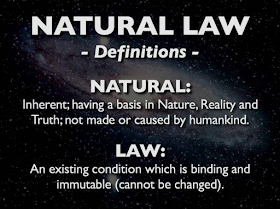This past Sunday,
May 14, 2017, at the Cathedral of St. Thomas More in Arlington, Virginia, we
had the privilege of singing for the Mass celebrated by Gerhard Cardinal
Müller, Prefect of the Congregation for the Doctrine of the Faith. His Eminence was in the United States as the main celebrant and homilist
for the Baccalaureate Mass at Christendom College in Front Royal, Virginia, on
May 12. He was also the commencement
speaker for this year’s ceremonies on May 13, where he received an honorary
doctorate before delivering his address.
 |
| His Eminence Gerhard Cardinal Müller |
Interestingly,
Cardinal Müller, seems to be the
target of almost as much flak as Pope Francis . . . and for similar
reasons. That is people who insist on
putting their own interpretation on Church teachings, papal statements, and media
reports (or other vague rumors and gossip), without regard to the underlying principles of
natural law or common sense, or (especially) if it is even true (we can
certainly sympathize with that).
Oddly, both “conservative”
and “liberal” Catholics do this, the former to their rather stagy dismay, the
latter to their even stagier elation. Evidently
based on a shift from knowledge to opinion as the basis of truth (one of the
ten great philosophical mistakes Mortimer Adler excoriated, a.k.a. the shift from the Intellect to the Will as the basis of natural law), all the
histrionics and hissy fits seem quite convenient and geared toward advancing
some agenda other than mere truth,
which should be the only thing that matters.
 |
| Dred Scott |
Nor is this
something peculiar to the Catholic Church, or even organized religion. As the great constitutional scholar William
Winslow Crosskey noted in his monumental study, Politics and the Constitution in the History of the United States
(1953), legal positivism got its foothold in the U.S. as a result of the desire
to preserve and extend slavery. This
culminated in the infamous Dred Scott decision in 1857 by means of which the
United States Supreme Court shifted sovereignty from people to the State, the
effects of which (reaffirmed in the Slaughterhouse
opinion in 1873) can be seen in such decisions as Roe v. Wade and Citizens
United.
Thus, whether we’re
talking about politics, religion, economics, or the Great Pumpkin, nobody seems
to care whether something is true, just whether it gets them what they want,
whatever the cost, repercussions, or consequences. All the “new things” to which Pope Leo XIII
referred well over a century ago, e.g.,
legal positivism, moral relativism, nihilism, socialism, modernism, the occult,
etc., etc., etc., all seem to
boil down to one fundamental principle: all things must be subordinate to the
desire of the strongest. Might makes
right.
And that was the
problem Cardinal Müller addressed in his sermon — indirectly.
After a few
comments on motherhood (this past Sunday was, after all, Mothers Day), His
Eminence began by pointing out that Jesus (as Christians believe) is “the Way,
the Truth, and the Life,” implying a bit more emphasis on Truth than “the Way”
or “the Life” in the context of his talk.
Faith and Hope, he noted, are based on Jesus, Who is therefore the basis
of the Family, the basic unit of society, of which the mother is the heart (an
excellent segue, by the way, and it didn’t seem forced at all). The Cardinal concluded by explaining that the
Family is a mirror of heaven [or should be, in his opinion — ed.], and that
restoring marriage and family is a priority, which can only be done by knowing
Jesus, for by knowing Jesus, we know the Father.
Let us expand on
that from a natural law perspective and build on what Cardinal Müller said — meaning
our understanding of his words, not what he actually said; we’re not quoting,
but commenting.
As “true God and
true man,” Jesus perfectly embodies the natural law, the common code of human
behavior. By following the precept of
the natural law — good (justice) is to be done, evil (injustice) avoided —
people conform themselves to Jesus as the perfect model, whether or not they
believe He is God, or even ever heard of Him.
For
non-Christians or non-Catholics, of course, this starts to sound like a giant, “So
what?”, but that’s not the point relevant to the Just Third Way. Translating the Cardinal’s remarks from “religious”
to “natural law” language, all forms of society and our institutions must be
based on truth, that is, the natural law, and the institutions of society be
structured in such a way as to make the pursuit of justice, that is, of the
good, the optimal choice. The Family,
especially, must be solidly grounded on truth, and the only way to restore marriage
and family is to restore a foundation on truth in order to assist every member
of the family to pursue justice and the good.
But how does this
relate to the Just Third Way?
That is what we
will look at tomorrow.
#30#
